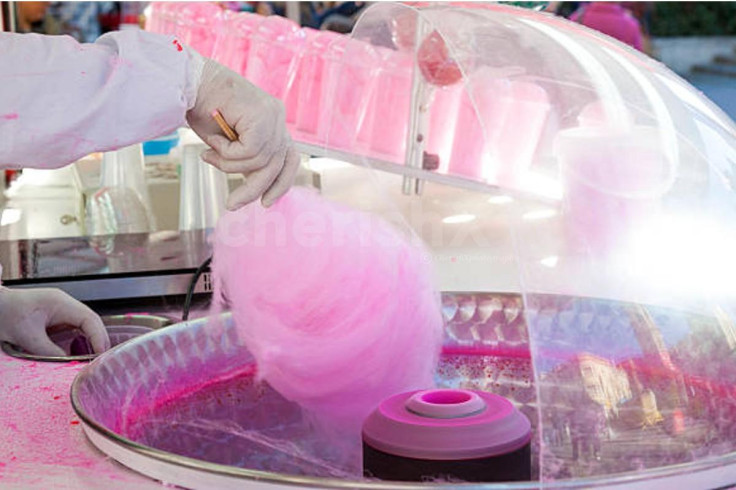Indian States Ban Cotton Candy Amid Concerns Over Cancer-Causing Dye
Several other states have decided to test samples of cotton candies.

Indian states have banned candy floss after some of the samples tested positive for a cancer-causing substance called Rhodamine-B.
The ban has been imposed by Tamil Nadu and Puducherry, a union territory of India. Meanwhile, several other states, like Delhi and Andhra Pradesh, have decided to test cotton candies.
The development was first confirmed by the health minister of Tamil Nadu, Ma Subramanian. He said that several samples were tested for the substance. Rhodamine-B was present in the industrial dye added as an artificial colouring agent to the candy floss samples.
The minister added that the "packaging, import, sale of food or serving food containing it at weddings and other public events would be punishable under the Food Safety and Standards Act, 2006".
Rhodamine-B can increase the risk of cancer. It has been banned for use as a food dye in Europe and California.
"It [Rhodomine-B] is used in leather colouring as well as paper printing. It cannot be used for food colouring, and has immediate and long-term health hazards," the Hindu quoted an officer of the Food Safety Department, Chennai, as saying. The union territory of Puducherry banned the sweet treat earlier this month.
According to data from a study conducted by the US government-run National Library of Medicine, Rhodamine-B ingestion can lead to oxidative stress in lab rats. This condition can cause damage and death of specialized cells in the cerebellum and brainstem tissue.
"The use of Rhodamine B in food for a long time leads to liver dysfunction or cancer, and when exposed to large amounts over a short period, it results in acute poisoning," reads an excerpt of a study available on the website.
Last year, California banned four food additives commonly found in soda and candies. The California Food Safety Act, which will come into effect in 2027, bans brominated vegetable oil, potassium bromate, propylparaben, and Red Dye 3.
Some of these chemicals have been linked to cancer in animals. These four additives have already been banned by the European Union.
In 2014, a study by Johns Hopkins Bloomberg School of Public Health found that the caramel colouring in some dark soft drinks exposes consumers to 4-methylimidazole (4-MEI), a possible human carcinogen.
It said that people who consume dark coloured soft drinks are potentially exposing themselves to increased risks of developing cancer because of the ingredient.
The results indicated that levels of 4-MEI could vary substantially across samples, even for the same type of beverage. In the case of diet colas, for example, certain samples had higher or more variable levels of the compound, while other samples had very low concentrations.
© Copyright IBTimes 2025. All rights reserved.






















